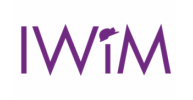We are pleased to introduce you to members of our new research team!
They’re from different parts of the world and they have an extensive knowledge of the mining industry. We’re glad that they’ve volunteered to help us gather data and other information on gender in the mining industry, so as to better understand the roles of women in mining and to contribute to the progress of women’s careers.
Graciela Arrieta
Graciela is co-head of IWiM Research. She is a Peruvian lawyer who works with the National Society of Mining, Petroleum and Energy in Peru. She holds a Master of Laws in Mineral Law and Policy from the Centre for Energy, Petroleum and Mineral Law and Policy, University of Dundee. She wrote her thesis on “Women in the Peruvian Mining Industry: Bridging the Gap on Local Empowerment in Mining Companies’ Initiatives”. Graciela has more than 13 years experience in the public and private sector for the mining and the oil & gas industry, including international cooperation agency. Among the different areas of her expertise are corporate law, regulatory affairs, stakeholder engagement, legal compliance, negotiation, obtaining permits and authorizations, legal defense, and risk mapping. She has lectured in different training programmes. She is Co-Founder and Director of Women in Mining Peru, where she is responsible for corporate affairs, research and decentralization.
Chilenye Nwapi
Chilenye is co-head of IWiM Research. He is, among other things, a research fellow in the Canadian Institute of Resources Law, a role he combines with active, on-the-ground international development consulting, working on donor-funded projects that provide capacity building support to national governments and their agencies within the extractive resource sector. He holds a PhD in law from the University of British Columbia, Canada (specialising in resource extraction, business and human rights) and a Master of Laws in Natural Resources, Energy and Environmental Law from the University of Calgary, Canada. Chilenye has a strong track record of publications in peer-reviewed international journals on extractive sector-related issues. His research on such issues as extractive sector transparency, local content, public participation, community development agreements, environmental impact assessments and property rights and gender equality is frequently cited in the literature. Chilenye’s vast knowledge of the law, policy and governance issues in the extractive industry, particularly mining, coupled with the male perspective he provides, is an asset to the IWiM research team.
Arishma Ram
Arishma is a lecturer in Environmental Science at Fiji National University. She holds both BSc and MSc in Environmental Science from The University of the South Pacific, Fiji and is currently working towards her PhD in the School of Environment in the University of Auckland, New Zealand, focusing on landslides. She has more than 10 years experience in higher education geoscience teaching and research. Her research has mostly been on geo-environmental risk and management. She developed an interest in gender and mining research while working on the revision of teaching programmes in her current teaching job. She realized there was a lack of knowledge in that area in the Pacific Islands. She has a strong interest in applied geoscience research which can create equal opportunities for women in society.
Esther Harris
Esther is a PhD researcher in the Centre for Responsible Citizenship and Sustainability, the School of Business and Governance, Murdoch University, Australia, with a research focus on gender in mining. Esther holds both BSc and MSc in Geoscience from Monash University, Australia. Ester has over 20 years experience in the mineral exploration industry and in geoscience research. She has spent the last decade supporting Australian companies operating in North and West Africa as an exploration consultant and working closely with local geological surveys and mining ministries. During this phase of her career, she acquired an interest in geoscience for development particularly in the areas of geoscience knowledge infrastructure and gender in mining.
Rachel Etter-Phoya
Rachel has a strong interest in justice and development. Her engagement with the mining sector started six years ago through research among farming cooperatives supported by a mining company in Zambia. Since then, she has worked with diverse stakeholders to improve the way the extractive industry is managed, particularly in Southern Africa. She represented civil society organisations on Malawi’s first Extractive Industries Transparency Initiative multi-stakeholder group and has worked alongside civil servants to implement improved, digitised revenue management systems for natural resources. She currently is a researcher with the Tax Justice Network, OpenOil and Resources for Development, among others. Rachel holds a BA in Anthropology and English (University of Zurich, Switzerland) and a MSc in International Rural Development (Royal Agricultural University, UK). She is completing her Master of Laws in Natural Resources Law and Policy in the University of Dundee, Scotland. Rachel lives and works in Lilongwe, Malawi.
Mary Matiko
Mary is a recent Mining Engineering graduate from University of Dar es Salaam, Tanzania. She has had practical training in the quarry industry in underground and open pit gold mining. She has developed skills and knowledge in determining various mining technical problems and putting forward needed solutions. Until recently in Tanzania, women were hardly allowed to visit and work in underground mining. Mary’s practical training in the field – that she was even allowed to undertake the training – is therefore very significant and has informed her interest in promoting gender equity in mining. Mary is based in Dar es Salaam, Tanzania.
IWiM conducts research on women and women’s contribution to the mining sector via our network of volunteer coordinators and researchers. Contact us for more information: research@internationalwim.org

